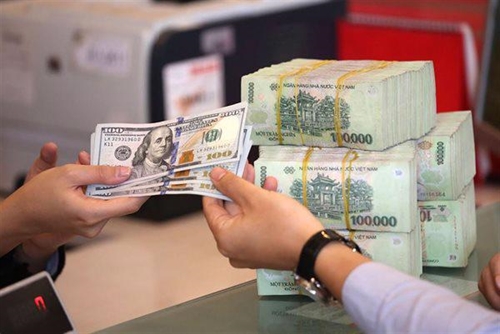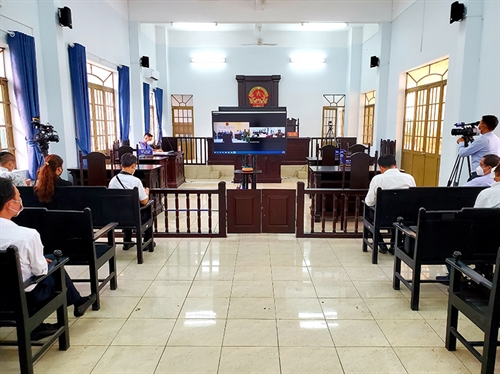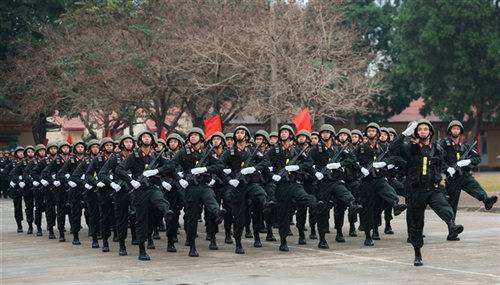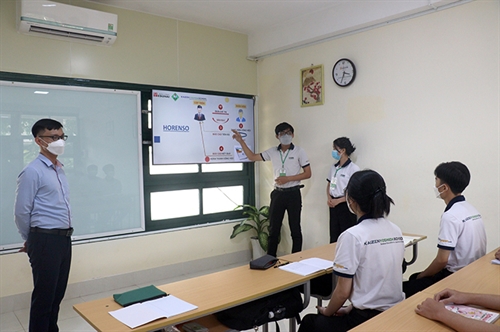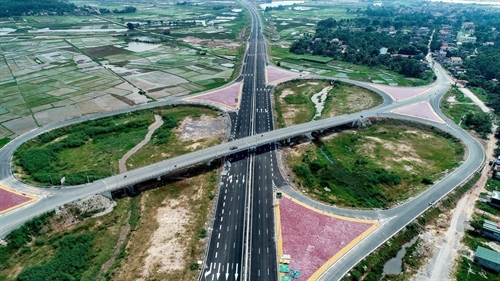Effective on July 1 this year, the 2022 Law Revising a Number of Articles of the 2009 Law on Radio Frequencies (the Revised Law) aims to strictly manage and rationally and effectively allocate the radio frequency use right in order to create a healthy competitive environment in the telecoms field.
The Revised Law amends 23 out of 49 articles of the 2009 Law and adds three articles, focusing on the following major groups of issues: master plans on frequency bands, grant of radio frequency use licenses, revenues from use of radio frequencies, training of radio operators and grant of radio operator certificates, handling of harmful interferences, and registration of and international cooperation on radio frequencies and satellite orbits.
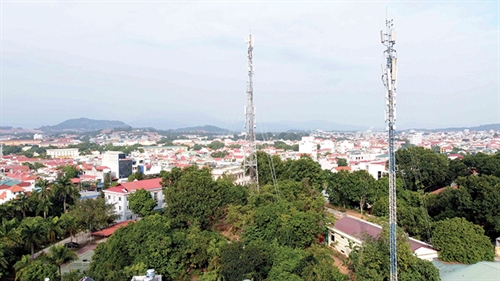 |
| Two 5G base stations in Vinh Yen city, Vinh Phuc province__Photo: Hoang Hung/VNA |
Master plans on frequency bands
Master plan on frequency bands is defined under the Revised Law as a master plan on division of frequency bands into one or more than one frequency band block for each type of radiocommunication system and on allocation of such frequency bands to one or more than one organization for use under specific conditions. For frequency bands planned for public land mobile telecommunications systems, the allocation thereof must take into account the maximum limit of the total frequency band width an organization is licensed to use within the planned frequency bands or in a given frequency band group.
The Revised Law says that the manufacturing and import of radio equipment and radio-wave appliances for use in Vietnam and the management and use of radio frequencies must comply with radio frequency master plans, except special cases in which radio frequencies are permitted for use not under radio frequency master plans. These cases include the use of radio frequencies for purposes of exhibition, measurement and test, research, or testing of new technologies, and the use of radio frequencies at international events or international conferences. The Ministry of Information and Communications is vested with the power to consider licensing the use of radio frequencies and equipment not under radio frequency master plans on a case-by-case basis and specify use conditions.
Methods of granting radio frequency use licenses
Radio frequency use licenses will be granted by three methods, namely auction of the right to use radio frequencies, examination for selection of entities eligible for the radio frequency use right, and direct licensing of the radio frequency use right.
The first method will apply to (i) frequency bands for establishing public land mobile telecommunications networks; and (ii) frequency bands and frequency channels for establishing other public land telecommunications networks as decided by the Prime Minister at the proposal of the Minister of Information and Communications.
The second method will apply to the frequency bands and frequency channels mentioned in cases (i) and (ii) above when it is necessary to apply new technologies in wide areas within a certain period of time or to attract new organizations to participate in the market for promoting competition in telecommunications activities. The Prime Minister will decide on frequency bands and frequency channels to be licensed by this method at the proposal of the Minister of Information and Communications.
The last method will apply to frequency bands and frequency channels other than those mentioned in the above cases. However, this method will apply to these cases if (i) such frequency bands and frequency channels are used for the purpose of testing telecommunications networks and services or in special cases in which radio frequencies are permitted for use not under radio frequency master plans, (ii) licenses are granted in the state of emergency, with the validity period of licenses not exceeding 3 years, or licenses are re-granted, or (iii) in special cases in which licenses of a validity period of no more than three years are granted to state enterprises directly serving national defense and security purposes for economic development in combination with performance of national defense and security tasks.-
